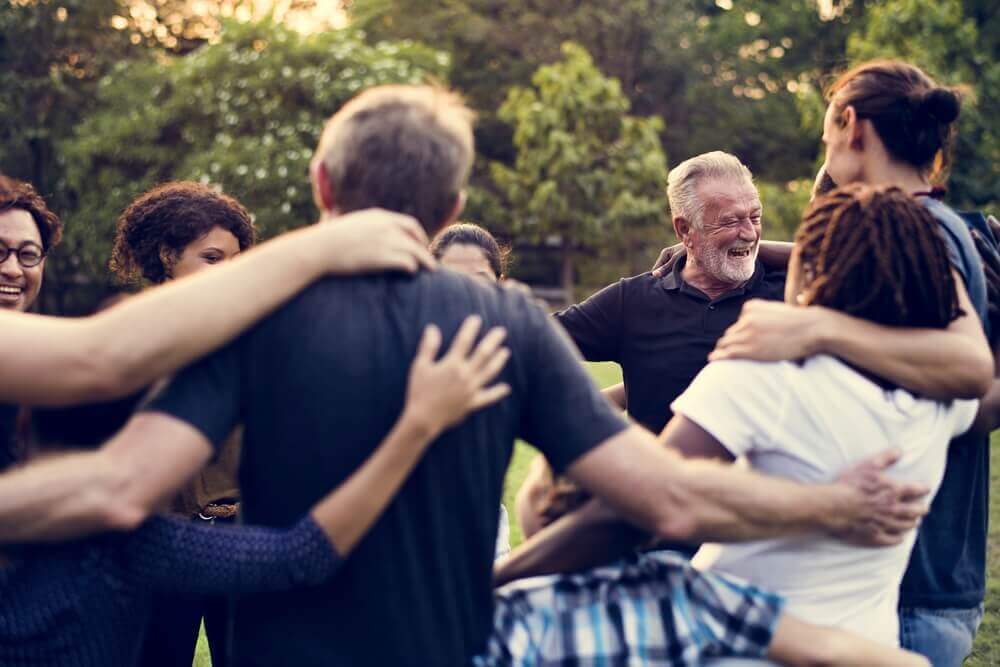When it comes to addiction recovery, one of the most important factors in long-term success is the presence of a strong support system. Whether individuals are going through rehab or have completed treatment, having a community around them that provides encouragement, understanding, and accountability can make all the difference. This is why building a strong network is essential for any rehab center that aims to offer comprehensive, lasting recovery solutions.
In this blog post, we will explore the vital role of community in rehab success and offer tips on how rehab centers can build and nurture a strong, supportive network that benefits both clients and their families.
1. Why Community Matters in Recovery
Addiction can be an isolating experience, often leading individuals to feel disconnected from others. During recovery, this isolation can create significant challenges, as individuals may struggle with feelings of shame, guilt, or loneliness. This is where a supportive community plays a critical role.
A strong community offers:
- Emotional Support: Recovery can be an emotional rollercoaster, and having a network of people who understand and offer empathy can help individuals feel less alone in their journey.
- Accountability: Being part of a community gives individuals a sense of responsibility to others, which can help them stay committed to their recovery goals and avoid relapse.
- Shared Experiences: Hearing stories of others who have successfully navigated recovery can inspire hope and provide practical insights into the challenges and victories of the process.
The sense of belonging to a community encourages individuals to stay on the path of recovery and reinforces the idea that healing is possible with the support of others.
2. Building a Strong Network Within Your Rehab Center
As a rehab facility, one of the first places where a strong community can be built is within the center itself. Here are some ways to foster a supportive environment within your rehab center:
- Group Therapy Sessions: Group therapy is one of the most effective ways to create a sense of community. It allows individuals to share their experiences, gain insights from others, and provide mutual support. Group therapy promotes open communication and encourages individuals to see they are not alone in their struggles.
- Peer Support Programs: Pairing individuals in recovery with peers who have successfully navigated their own journeys can create a powerful bond. Peer support provides both guidance and encouragement, reinforcing the idea that recovery is achievable.
- Family Support Programs: Recovery is not just about the individual — it’s also about their loved ones. By offering family counseling or support groups, you help families learn how to provide the best support for their loved ones while also addressing their own emotional needs. This holistic approach strengthens the entire recovery ecosystem and builds a stronger foundation for lasting success.
3. Engaging with the Local Community
While creating a network within your rehab center is important, it’s also essential to extend your reach into the local community. A rehab center that is integrated into its community can provide additional support to clients both during and after treatment.
Here are a few strategies for engaging with the local community:
- Community Outreach: Host events or workshops focused on addiction awareness, prevention, and recovery. These events allow individuals in the community to learn more about addiction and recovery while also offering potential clients a chance to connect with your center in a meaningful way.
- Partnerships with Local Organizations: Form partnerships with local support groups, schools, and mental health professionals. This can create a broader network that helps clients access ongoing care, educational resources, and peer support.
- Volunteer Opportunities: Encourage clients in recovery to give back by participating in volunteer work. Volunteering not only strengthens the connection between the rehab center and the community, but it also helps individuals in recovery find purpose and build new, positive relationships.
Building strong relationships with local businesses, healthcare providers, and community organizations can help expand the support network available to your clients and make reintegration into society smoother after treatment.
4. Utilizing Online Communities and Resources
In today’s digital world, online communities can be an essential part of a person’s recovery journey. For clients who may not have access to in-person support groups or those who are in the early stages of recovery, online communities can offer connection, guidance, and inspiration.
- Social Media Support Groups: Create or encourage participation in private social media support groups where individuals in recovery can share experiences, provide advice, and encourage one another.
- Online Peer Mentorship Programs: Consider offering virtual mentorship programs where clients can connect with peers who are further along in their recovery journey. These online connections can provide guidance, accountability, and motivation.
- Webinars and Virtual Events: Hosting virtual events such as webinars on mental health, wellness, and recovery can help build a larger network of support that clients can turn to whenever they need it, no matter where they are.
These digital resources create an additional layer of support for individuals and can be particularly helpful for clients who are in remote areas or who are unable to attend in-person meetings.
5. Encouraging Long-Term Recovery Connections
Building a community doesn’t stop after treatment ends. Long-term recovery requires ongoing support, and your rehab center can help foster these relationships even after clients have completed their programs.
- Alumni Networks: An alumni program is a great way to keep past clients connected to one another and the rehab center. Host regular alumni events, such as reunions or check-in calls, where individuals can continue to build friendships, share their stories, and stay accountable to their recovery goals.
- Support Groups for Graduates: Offering ongoing support groups for individuals who have completed your program can provide a safe space for sharing challenges and celebrating victories. These groups help individuals stay engaged with the recovery community and ensure they have a continuous support system.
- Aftercare Programs: Providing aftercare services such as counseling, therapy, or job placement assistance ensures clients are not left without support once they leave your rehab center. This type of continued care is crucial for preventing relapse and maintaining long-term recovery.
6. Empowering Clients to Build Their Own Support Networks
Lastly, it’s important to empower your clients to build and maintain their own networks outside of your rehab center. Encourage them to:
- Reach out to loved ones: Teach clients how to strengthen their relationships with family and friends who can act as pillars of support.
- Join local 12-step groups: Recommend local support groups like AA or NA that provide a built-in community of individuals who understand their challenges and triumphs.
- Engage in local activities: Encourage participation in community activities, whether it’s joining a local gym, taking classes, or volunteering. Engaging in these activities helps individuals build new, healthy relationships.
The key is to equip your clients with the tools and knowledge they need to develop their own support systems that will continue to help them thrive after leaving treatment.
Conclusion
Community is a powerful force in addiction recovery. By creating a strong network within your rehab center, engaging with the local community, utilizing online resources, and encouraging long-term recovery connections, you can help your clients build the solid foundation they need to achieve lasting recovery.
Ultimately, a rehab center that values community fosters an environment where individuals feel supported, understood, and empowered. By nurturing these connections, you’ll increase the likelihood of your clients’ long-term success and make a positive impact on the broader community.




















